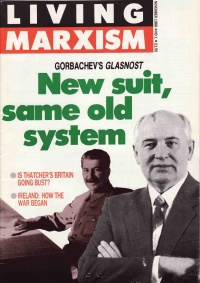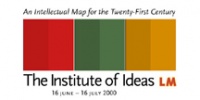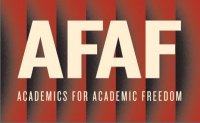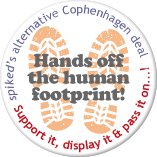Difference between revisions of "LM network"
(→The Background) |
(Culture Wars defunct) |
||
| (388 intermediate revisions by 6 users not shown) | |||
| Line 1: | Line 1: | ||
| − | The | + | {{Powerbase:LM network: Resources}} |
| + | The [[LM network]] or LM group is a superficially loose and informal network of individuals and organisations sharing a libertarian and anti-environmentalist ideology. Its constituent organisations are led and largely composed of people associated with the defunct [[Revolutionary Communist Tendency]]/[[Revolutionary Communist Party]] (RCP) and its principal publication [[Living Marxism]]. The network has no public presence or acknowledged existence. The strongest link is between the largest and longest established entities, [[Spiked]] and the [[Institute of Ideas]], both established in 2000 by close associates and for many years operating from the same address, Signet House 49-51 Farringdon Road EC1M 3JB, previously the offices of [[Living Marxism]] <ref>”[http://www.locallife.co.uk/islington/business-consultants.asp?pageno=3 LM Magazine]” Local Life website accessed 7th June 2010</ref>. Thus [[Patrick Hayes]] affirms in his twitter profile "I work for spiked www.spiked-online.com and the Institute of Ideas www.instituteofideas.com...". <ref>[http://twitter.com/#!/P_Hayes P Hayes] Twitter website acc 29 Oct 2011</ref> Associated entities typically have overlapping personnel, similar themes, views and techniques, and promote one another. The network's funds and staff numbers are relatively limited as is its influence. Perhaps of most concern are those LM associates who have obtained influential positions with other organisations and the network’s extensive youth oriented programmes. | ||
| − | + | The rationale for profiling the LM network on Powerbase is not any one of its main characteristics but rather their combination; these being: advocating policies which benefit corporate interests, as set out by the [[Institute of Ideas]], corporate funding, a significant focus on influencing youth; the number of organisations it operates; and a lack of transparency about its origins, methods, scope and purpose. This profile is necessarily extensive and detailed because of the network's disparate nature and the lack of formal public links between its entities. | |
| − | The | + | [[Image:Living Marxism No 1.jpg|thumb|right|200px|The first edition of [[Living Marxism]], November 1988, edited by [[Mick Hume]].]] |
| − | |||
| − | + | [[Image:Lm.gif|thumb|right|300px|The logo of [[LM Magazine]] after it changed its name from [[Living Marxism]] at issue 97 in February 1997.<ref>'[http://web.archive.org/web/19980218145236/www.informinc.co.uk/LM/LM97/index.html Welcome to the new-look LM]', ''[[LM]]'', February 1997, retrieved from the Internet Archive of 18 February 1998, accessed 27 October 2010</ref>]] | |
| − | : | ||
| − | |||
| − | |||
| − | : | ||
| − | |||
| − | |||
| − | |||
| − | |||
| − | |||
| − | |||
| − | |||
| − | + | ==Methods== | |
| + | The Institute of Ideas’ Director [[Claire Fox]] concedes, ‘Certainly, there is a network of like-minded people. Some people do come from an RCP background, because we have a long intellectual history together, and we do work together sometimes…’<ref>Chris Bunting, [http://www.timeshighereducation.co.uk/story.asp?storycode=193769 What's a nice Trot doing in a place like this?], Times Higher Education, 28 Jan 2005, acc 21 May 2010</ref> Former editor of LM and Spiked and continuing Spiked contributor [[Mick Hume]] confirms, ‘The network of people I live and work with contain lots of people who were members of the RCP.’<ref>Andy Beckett, [http://www.guardian.co.uk/theguardian/1999/may/15/weekend7.weekend2 Licence to rile], The Guardian, 15 May 1999, acc 21 May 2010</ref> while Spiked and Institute of Ideas contributor [[Dolan Cummings]] explains ‘I never left the RCP: the organisation folded in the mid-Nineties, but few of us actually 'recanted' our ideas. Instead we resolved to support one another more informally as we pursued our political tradition as individuals, or launched new projects with more general aims that have also engaged people from different traditions, or none. These include Spiked and the Institute of Ideas... ‘<ref>Dolan Cummings, [http://www.spiked-online.com/index.php/site/printable/3954/ In defence of ‘radicalisation’: Critiques of Hizb ut-Tahrir focus less on its dodgy politics than on its intellectualism. But what’s wrong with a devotion to the debate of ideas?], Spiked, 12 Oct 2007, acc 21 May 2010</ref> | ||
| + | [[Image:LM-logo-200.gif|thumb|left|300px|[[Living Marxism]] logo circa January 1997 from their website www.junius.co.uk]] | ||
| − | + | In his statement announcing the closure of LM magazine in spring 2000, LM editor Mick Hume promised that “The LM-initiated Institute of Ideas, a series of events planned to take place from June to July, will go ahead in partnership with major institutions in London, including the British Library, the Royal Institution, the Royal Shakespeare Company, the Royal Society of Arts, Tate Modern, and the Union Chapel Project. A new company, the [[Academy of Ideas]], has been set up by Claire Fox to coordinate these events.” | |
| − | + | He also stated that “As for the post-LM future of magazine publishing, watch this space”. Mick Hume was the first editor of Spiked, launched shortly afterwards. | |
| − | + | Many of the organisational and campaigning approaches used by those in the network are characteristic of those used by the RCP, including: the creation of a range of organisations without apparent formal links; the launching of multiple campaigns; the use of extensive and extended debate; the adoption of contrarian and controversial positions; the use of martial terminology; and the early adoption of leading edge communication techniques. | |
| − | + | A defining characteristic of the network’s entities are their positioning and presentation as catalysts for debate or irreverent challenging of established orthodoxy. In practice, this enables the promotion of the views of the network and its sponsors on almost any topic, under the guise of free enquiry. Their principal underlying themes of economic development and freedom from regulation benefit corporate interests while the larger and more established organisations explicitly seek sponsorship, either directly or via PR companies or free enterprise think tanks. Several of the entities target young people, while others are sector or issue led. The network's entities are increasingly seeking partners overseas. | |
| − | + | Individual ex-RCP members with links to the network have assumed influential positions elsewhere, particularly in the media and sciences. Members of the network write regularly for mainstream news publications, particularly the Independent, which publishes an occasional series of Battle of Ideas thought pieces, Prospect and Huffington Post (UK) and appear on topical radio programmes, notably the [[Moral Maze]]. | |
| − | + | However, higher education is the most common occupational sector of associated personnel. Many have past or current links with the adjacent Universities of Kent, Canterbury Christ Church, Sussex and East London. Their influence on the latter is particularly evident in UEL units [[London East Research Institute]] and [[Rising East]]. Details of some of those associated with the LM network are available via LM network at the bottom of this page. | |
| − | + | An example of how the network operates was when LM associates [[James Heartfield]] and [[James Woudhuysen]] set up a building industry consultancy [[Audacity]] <ref>"[http://www.audacity.org/people.htm People]" Audacity website, accessed 5 June 2010</ref> and sought funding from building companies <ref>"[http://www.audacity.org/sponsors.htm We need your support]", Audacity website, accessed 5 June 2010</ref>. The consultancy then published Heartfield’s book ‘Let’s Build’ calling for government support for the building industry <ref>"[http://www.audacity.org/buy.htm Buy]" Audacity website, accessed 5 June 2010</ref>. Heartfield’s book was then promoted across part of the rest of the network: [[Birmingham Salon]] <ref>"[http://www.birminghamsalon.org/ Let’s Build event 8th June 2010]", Birmingham Salon website, accessed 5 June 2010</ref>, [[Spiked]] <ref>"[http://www.spiked-online.com/index.php?/site/boxarticle/3395/ We need more houses, not divisive housing policies]" Spiked website, accessed 5 June 2010</ref> and [[WORLDbytes]]. <ref>"[http://www.worldbytes.org/shownpreviously.html Programme 7 Audacity Director Ian Abley on planning laws]" WORLDbytes website, accessed 5 June 2010</ref> | |
| − | + | [[File:Internet freedom.png|thumb|left|300px|[[Internet Freedom]], a project of the [[LM network]]]] | |
| + | [[File:Libero.png|thumb|right|300px|[[Libero]], a project of the [[LM network]]]] | ||
| + | [[File:Transport Research.png|thumb|left|300px|[[Transport Research Group]], a project of the [[LM network]]]] | ||
| + | [[Image:IoI small.jpg|thumb|right|200px|The Institute of Ideas: an [[LM]] project. Image from the LM website @ www.informinc.co.uk circa 2000 promoting the first Institute of Ideas event in June/July 2000<ref>Retrieved from the Internet Archive the [http://web.archive.org/web/20000207200115/http://www.informinc.co.uk/ LM] website of 7 February 2000</ref>]] | ||
| + | [[File:IoI.png|thumb|left|200px|[[Institute of Ideas]], at the core of the [[LM network]]]] | ||
| + | [[File:Battle of Ideas logo.gif|thumb|right|200px|[[Battle of Ideas]], a project of the [[Institute of Ideas]], part of the [[LM network]]]] | ||
| + | [[File:Academylogo.gif|thumb|left|300px|[[The Academy]], a project of the Institute of Ideas, a core element of the [[LM network]]]] | ||
| + | [[File:Battleofideasbanner.jpg|thumb|right|600px|[[Battle of Ideas]] banner noting the funding of the [[LM network]] by pharma giant [[Pfizer]], [[BT]] and [[Rupert Murdoch]]'s newspaper ''[[The Times]]''.]] | ||
| + | [[File:Culture Wars.jpg|thumb|left|300px|[[Culture Wars]], a project of the Institute of Ideas, a core element of the [[LM network]]]] | ||
| + | [[File:Debating Matters.gif|thumb|right|300px|[[Debating Matters]] a project of the [[Institute of Ideas]] a core element of the [[LM network]]]] | ||
| + | [[File:GU Logo Animated Text.gif|thumb|left|400px|[[Global Uncertainties Schools Network]] a project of [[Debating Matters]] which is in turn part of the [[Institute of Ideas]] a core element of the [[LM network]]]] | ||
| + | [[File:Belfast Salon.png|thumb|right|200px|[[Salons]], projects of the [[LM network]]]] | ||
| + | [[File:Birmingham Salon.png|thumb|left|200px|[[Salons]], projects of the [[LM network]]]] | ||
| + | [[File:Brighton Salon.png|thumb|right|200px|[[Salons]], projects of the [[LM network]]]] | ||
| + | [[File:East Midlands Salon.png|thumb|left|200px|[[Salons]], projects of the [[LM network]]]] | ||
| + | [[File:Huddersfield Salon.png|thumb|right|200px|[[Salons]], projects of the [[LM network]]]] | ||
| + | [[File:Leeds Salon.png|thumb|left|200px|[[Salons]], projects of the [[LM network]]]] | ||
| + | [[File:Manchester Salon.png|thumb|right|200px|[[Salons]], projects of the [[LM network]]]] | ||
| + | [[File:NY Salon.png|thumb|left|200px|[[Salons]], projects of the [[LM network]]]] | ||
| − | |||
| − | + | [[File:AFAF LOGO small.jpg|thumb|right|200px|[[Academics for Academic Freedom]] and [[LM network]] associate.]] | |
| + | [[File:SAFAF.jpg|thumb|right|300px|[[Student Academics for Academic Freedom]] the student equivalent of [[Academics for Academic Freedom]] a project of the [[LM network]]]] | ||
| + | [[File:Manifesto club logo.jpg|thumb|left|200px|[[Manifesto Club]] part of the [[LM network]]]] | ||
| + | [[File:Maverick club logo.gif|thumb|left|300px|Logo of the [[Maverick Club]], circa 2000, a part of the [[LM network]]]] | ||
| + | [[File:Spiked logo.gif|thumb|right|200px| Logo of [[Spiked]], a core element of the [[LM network]], circa 2011.]] | ||
| + | [[File:YJA new banner.gif|thumb|left|600px|[[Young Journalists Academy]] is a project of [[Journalism Education Limited]] launched by [[Spiked]] a core part of the [[LM network]]]] | ||
| + | [[File:Novo logo.png|thumb|right|300px|[[Novo Argumente]] the German magazine affiliated with the [[LM network]]]] | ||
| + | [[File:Hands_off_the_human_footprint.jpg|thumb|left|200px|[[Hands Off The Human Footprint]] a [[Spiked]] campaign, part of the [[LM network]]]] | ||
| + | [[File:Modern movement demo.jpg|thumb|right|400px|The one and only [[Modern Movement]] demo - a counter to the protests against the third Heathrow runway in February 2009.]] | ||
| − | + | [[File:Audacity logo.jpg|thumb|left|200px|[[Audacity]], an [[LM network]] project]] | |
| + | [[File:Logo BigPotatoes.gif|thumb|left|200px|[[Big Potatoes]] part of the [[LM network]]]] | ||
| + | [[File:Engaging Cogs logo.gif|thumb|right|400px|[[Engaging Cogs]], an [[LM network]] project]] | ||
| + | [[File:Future cities.gif|thumb|left|400px|[[Future Cities Project]], associated with the [[LM network]]]] | ||
| + | [[File:Global futures logo.gif|thumb|right|600px|[[Global Futures]], an [[LM network]] venture]] | ||
| + | [[File:Mantownhuman logo.jpg|thumb|left|300px|[[ManTownHuman]] a project of the [[LM network]]]] | ||
| − | + | [[File:CPCS-150x100.jpg|thumb|right|200px|[[Centre for Parenting Culture Studies]], associated with the [[LM network]]]] | |
| + | [[File:Generation Youth Issues logo.gif|thumb|left|300px|[[Generation Youth Issues]], a project of the [[LM network]]]] | ||
| + | [[File:Parentswithattitude.jpg|thumb|right|600px|[[Parents With Attitude]], associated with the [[LM network]]]] | ||
| + | [[File:Pro choice forum.gif|thumb|left|200px|[[Pro-Choice Forum]], part of the [[LM network]]]] | ||
| − | |||
| − | + | [[File:Worldwrite_logo.gif|thumb|right|200px|[[Worldwrite]], part of the [[LM network]]]] | |
| + | [[File:Worldbytes.jpg|thumb|left|300px|[[Worldbytes]] part of [[WORLDWrite]], a project of the [[LM network]]]] | ||
| + | [[File:Easynet logo.jpeg|thumb|right|200px|[[Easynet]], started by [[LM network]] associate [[Keith Teare]]]] | ||
| + | [[File:200px-Cyberia Internet Cafe.gif|thumb|left|400px|[[Cyberia]] a business set up by [[LM network]] associate [[Keith Teare]]]] | ||
| − | + | [[File:ELSS Logo.png|thumb|right|300px|The logo of the [[East London Science School]] the first venture of the [[LM network]] into running an educational establishment]] | |
| − | |||
| − | + | ==Funding== | |
| + | None of the organisations associated with the LM network provides a breakdown of funders and how much they have provided. We do know, however, that they are funded by corporations that fund think tanks dedicated to promoting their interests in the political and media spheres. For example, the pharmaceutical company [[Pfizer]] has funded [[Spiked]], the [[Institute of Ideas]]' [[Battle of Ideas]] in 2005 and 2006, the [[Debating Matters]] programme and two organisations with which the LM network has connections, the [[Science Media Centre]] and [[Sense About Science]]. Both of the latter are engaged in managing debate about scientific issues. | ||
| − | + | As well as funding the LM network, Pfizer funds free market think tanks such as the US-based [[Competitive Enterprise Institute]] and [[Cato Institute]], the Netherlands-based [[Edmund Burke Foundation]], the Brussels based [[Centre for the New Europe]] (which also does work on climate funded by [[Exxon]]), the UK’s [[Social Market Foundation]] and the [[American Council on Science and Health]], a deceptive front group. <ref>"[http://www.bmj.com/cgi/content/extract/340/apr07_2/c1819 American Council on Science and Health]", BMJ website, accessed 3 May 2010</ref> Pfizer is a member of one of the most important global corporate lobby groups, the International Chamber of Commerce. <ref>"[http://www.iccwbo.org/id19696/index.html Links to ICC member companies]", International Chamber of Commerce website, accessed 3 May 2010</ref> What’s in it for Pfizer? One clue is in the topics covered by the Debating Matters schools debating competition which include such subjects of interest to the pharmaceutical industry as: the value or otherwise of complementary medicine, NHS rationing of expensive drugs, clinical trials in developing countries, fertility treatments, genetic screening, anti-aging treatments, genetic engineering and animal experimentation. | |
| − | + | BT is another major sponsor of the LM network. BT sponsored the Battle of Ideas in 2006, 2007 and 2008. In addition, then BT subsidiary O2 sponsored five Spiked Debates during 2005, 2006 and 2007<ref>"[http://www.spiked-online.com/index.php/site/onlinedebates/ Online debates]", Spiked website, accessed 7 June 2010</ref> while another was sponsored by Orange. The Mobile Operators Association is also on record as having funded Spiked. In return, BT/ O2 and other operators had the opportunity via Spiked to challenge public concerns about the perceived effects on health, child protection and the environment of mobile phones. | |
| − | + | Other corporations and corporate lobby groups that have funded the LM network are [[Cadbury Schweppes]], [[IBM]], [[Novartis]], [[Orange]], [[O2]], The [[Mobile Operators Association]] and the [[Society of the Chemical Industry]]. <ref>"[http://www.spiked-online.com/pdf/BrandManagersPack.pdf Spiked Brand Managers’ Pack]", Spiked website, accessed 8 May 2010</ref> These sources of funding are typical of lobbying or PR firms. Unsurprisingly, some of the biggest lobby firms also fund the network. [[Hill and Knowlton]] is one of the most controversial lobbying and PR firms in the world, having famously been behind the deception on the incubator baby story in Kuwait in 1990/91. It also worked for a long list of controversial corporations, including some from the oil, tobacco, pharma, fast food, and GM industry. It worked too for repressive regimes, including Egypt, Haiti, Indonesia, Morocco, Turkey – and China after the Tiananmen square massacre. Along with PR firm [[Luther Pendragon]] (which has worked for the Hinduja brothers, Macdonalds, Pepsi, the GM industry and others), Hill and Knowlton has put up cash for LM network events. | |
| − | + | The LM network has also worked with other free market think tanks such as the [[International Policy Network]] (which took money from Exxon for climate change ’outreach’) and the [[Social Issues Research Centre]] (which takes money from the food, alcohol and tech industry and downplays the risks from their products). <ref>"[http://www.bmj.com/cgi/content/extract/340/mar03_3/c484 The Social Issues Research Centre]", BMJ website, accessed 3 May 2010</ref> | |
| − | + | ==Comment by George Monbiot== | |
| + | The following is an excerpt from an interview by Lobbywatch with [[George Monbiot]] about the LM network:<ref>Lobbywatch, [http://www.gmwatch.org/index.php?option=com_content&view=article&id=3876:interview-with-monbiot-on-the-lm-group Interview with George Monbiot about the LM group], 11 April 2007, archived on GMWatch website, accessed 21 May 2010</ref> | ||
| − | + | :Lobbywatch: Do you actually think there is a network of people concertedly working together as this LM group? | |
| − | + | :George Monbiot: That is a good question and I think it could be answered in several different ways. There is a group of people who have more or less stuck together for a long time. To what extent they consciously organise under a single name or under a single banner, I don’t know - you would have to ask them. But that they have pursued a very consistent agenda for quite a long time and the fact that they have moved first of all into one industry, television, and then into another, science communication, more or less as a body, suggests to me that there is a coordinated programme of action. | |
| − | + | :Lobbywatch: We all have networks of people that we interact with. What makes this so different? Why do you find it so worrying? | |
| − | + | :George Monbiot: There are two reasons why I find it worrying. The first is that the agenda they pursue appears not to be pursued overtly. For example, when they ran the magazine Living Marxism it was very far from a Marxism journal - it was just about as far from a Marxist journal as you could possibly get. And it seemed to me that the title was a direct and deliberate attempt to distract attention from the fact that this was a far right wing libertarian publication which was using the terms of the left to make it look as if the positions it was taking were new and unusual ones. Whereas in actual fact they were very well trodden ones, but well trodden by people like the [[Libertarian Alliance]] who in theory were at the other end of the political spectrum. | |
| − | + | In another part of the interview, Monbiot talks about the LM network's lack of transparency and their fondness for ostensibly objective debates: | |
| − | + | :Lobbywatch: Could you give more examples really of how you see them as not being as transparent as they might be? ... | |
| − | The Institute of Ideas | + | :George Monbiot: The idea of them sitting behind what appears to be a front? Well another example is the way in which you have got this great proliferation of organisations which all do the same thing and have the same people in it, but run under a host of different names. And perhaps, even more importantly, the way in which they stage debates which claim to be objective and even-handed debates but are totally controlled and managed. And this is what the Institute of Ideas specialises in. Where it will…it is very clever, it knows how to get famous names… because it will write to Melvyn Bragg or someone and say, ‘Mahatma Ghandi, Nelson Mandela and Jesus Christ are coming to speak at this conference we are having in six months time - would you like to join them?’ and they say, ‘Oh yes’. And then they’ll write to Fay Weldon and say ‘Melvyn Bragg, Mahatma Ghandi, Nelson Mandela and Jesus Christ are coming’. Etc. And then they’ll say ‘Unfortunately, Mahatma Ghandi, Nelson Mandela and Jesus Christ can’t come, but anyway we have got Melvyn Bragg and Faye Weldon’. And that is how they operate. So they get all these names together and everyone thinks ‘Oh look…look at all these big names doing this debate, it has got to be a really good debate’. And then they will stuff the panels with these network people. And then you’ll suddenly say ‘Well no, hang on, wait a minute - there’s [[Tony Gilland]], and there’s [[Juliet Tizzard]], and there’s [[Fiona Fox]] - what are they doing on the panel?’ |
| − | |||
| − | + | ==Organisations== | |
| + | ===Precursors=== | ||
| + | *[[Revolutionary Communist Tendency]] (1977-1981) | [[National Organisation of Revolutionary Communist Students]] 1979 | [[Revolutionary Communist Party]] (1981-1996)| [[The Red Front]] (1987) | [[Workers Against Racism]] (1978-?) | [[Smash the Prevention of Terrorism Act Campaign]] (1977-early 1980s) | [[Irish Freedom Movement]] (early 1980s to 1993) | ''[[Confrontation]]'', theoretical journal (1986-89) | [[The next step]], review/newspaper (1979-1994) | ''[[Living Marxism]]'' (1988-2000) | [[Ad-hoc Hands Off the Middle East Committee]], 1990 | | ||
| + | ===Companies=== | ||
| + | The LM network has operated via a series of companies. At first these were publishing companies, but from the mid 1990s as they branched out into the science communication world and the internet these became for profit companies which often employed significant numbers of LM network associates as well as being used to cross-subsidise other LM network entities. Companies include (in date order): | ||
| + | *[[Junius Publications]] (1977-2000) | [[Informinc (LM) Limited]] (1997-2004) | [[JP Graphics Limited]] (1997-2003) | [[Cyberia]] | [[Easynet]] | [[CScape]] | [[Inset Press Limited]] | [[Academy of Ideas]] | [[Cybercafe Limited]] | [[Delta Bravo Limited]] | | ||
| − | + | ===Defunct associated entities (with years of activity)=== | |
| + | * [[Africa Direct]] 1995-1997 | ||
| + | * [[Campaign Against Militarism]] 1993-1998 | ||
| + | * [[Channel Cyberia]] 1996-1999 | ||
| + | * [[Chew On It Productions]] 2000 (inc. 2006) (dormant) | ||
| + | * [[Culture Wars]] 1999-2013 | ||
| + | * [[Engaging Cogs]] 2006-2007 | ||
| + | * [[Families for Freedom]] 1996-1999 | ||
| + | * [[Feminists for Justice]] 1998-2000 | ||
| + | * [[Freedom & Law]] Active 1997 | ||
| + | * [[Genderwatch]] 1996-1999 | ||
| + | * [[Global Futures]] launched 2002 (dormant) | ||
| + | * [[Inter-Generation]] launched 2009 {dormant} | ||
| + | * [[Internet Freedom]] 1998-2006 | ||
| + | * [[Libero]] 1997-2000 | ||
| + | * [[Litigious Society]] launched 1999 by [[Global Futures]] | ||
| + | * [[London International Research Exchange]] 1994-1998 | ||
| + | * [[Maverick Club]] 1998-2002 | ||
| + | * [[ME-WE]] 2003-2005 | ||
| + | * [[Modern Movement]] active 2009 | ||
| + | * [[Parents Against the Charter]] active 1991 | ||
| + | * [[The Progress Club]] 2001 (dormant) | ||
| + | * [[Transport Research Group]] 2000-2008 | ||
| + | * [[Trasna An Domhain Go Leir]] 1999-2003 | ||
| + | * [[Workers Against Racism]] 1980-1994 | ||
| − | + | ===Active associated entities (with year of launch)=== | |
| + | * [[Academics for Academic Freedom]] 2007 together with [[Student Academics For Academic Freedom]] 2007 - Unqualified free speech | ||
| + | * [[Audacity]] 2000 - Construction | ||
| + | * [[Big Potatoes]] 2010 - Innovation | ||
| + | * [[Centre for Parenting Culture Studies]] 2007 - Academic network | ||
| + | * [[East London Science School]] 2013 - School | ||
| + | * [[Fans For Freedom]] 2012 - Anti-regulation | ||
| + | * [[Freedom in a Puritan Age]] 2009 - online magazine (loose association) | ||
| + | * [[Future Cities Project]] 2006 (together with [[Bookshop Barnies]] 2005 and [[ManTownHuman]] 2008) - Planning/ architecture | ||
| + | * [[Generation Youth Issues]] 2007 - Children and young people's peer relations | ||
| + | * [[Hands Off The Human Footprint!]] 2009 - 2010 (inactive) anti-environmentalist | ||
| + | * [[Institute of Ideas]] 2000 (together with [[Battle of Ideas]] 2005, [[Debating Matters]] 2003 and [[Global Uncertainties Schools Network]] 2010) - Debating fora | ||
| + | * [[Manifesto Club]] 2006 - Anti-regulation | ||
| + | * [[Novo Argumente]] 1992 - German online magazine (sister organisation) | ||
| + | * [[Parents With Attitude]] 2002 - Debating website | ||
| + | * [[Pro-Choice Forum]] 1997 - Abortion studies | ||
| + | * [[Salons]] (Regional) 2005 - Debating fora | ||
| + | * [[Spiked]] 2000 (together with [[Young Journalists Academy]] 2006 and [[free speech NOW!]] 2014) - online magazine | ||
| + | * [[Take a Liberty (Scotland)]] 2010 - Anti-regulation | ||
| + | * [[WORLDwrite]] 1991 (together with [[WORLDbytes]] 2008) - Current affairs/ media training | ||
| − | |||
| − | + | The LM network appears to have some influence with the [[Genetic Interest Group]], the [[Progress Educational Trust]], the [[Science Media Centre]] and [[Sense About Science]]. It also has links with [[The Free Society]] which uses as columnists LM associates [[Suzy Dean]], [[Claire Fox]] and [[Dennis Hayes]], carries articles by LM associates [[Dolan Cummings]], [[Shirley Dent]] and [[Tim Black]] and maintains front page links with LM entities the Future Cities Project, Institute of Ideas and Spiked <ref>"[http://www.thefreesociety.org/ Think Tanks/ Media]", The Free Society website, accessed 31 May 2010</ref>. The Free Society has as its policy director ex Tory MSP and hard right ex Chairman of the now disbanded [[Federation of Conservative Students]], [[Brian Monteith]]. The other principal organisations involved in the Society are the tobacco industry lobbyists [[FOREST]] and the right wing think tank the [[Adam Smith Institute]]. The Free Society was a partner of the 2008 Battle of Ideas. | |
| − | + | Information on these or other past or present LM/ RCP initiatives gratefully received. | |
| − | + | ==Notes== | |
| − | + | <references/> | |
| − | + | [[Category:GM]][[Category:Pro-GM Lobbyists]][[Category:GM Lobby Groups]][[Category:Biotechnology]][[Category:Corporate Science]][[Category:LM network]] | |
| − | |||
| − | |||
| − | |||
| − | |||
| − | |||
| − | |||
| − | |||
| − | |||
| − | |||
| − | |||
| − | |||
| − | |||
| − | |||
| − | |||
| − | |||
| − | |||
| − | |||
| − | |||
| − | |||
| − | |||
| − | |||
| − | |||
| − | |||
| − | |||
| − | |||
| − | == | ||
| − | |||
| − | |||
| − | |||
| − | |||
| − | |||
| − | |||
| − | |||
| − | |||
| − | |||
| − | |||
| − | |||
| − | |||
| − | |||
| − | |||
| − | |||
| − | |||
| − | |||
| − | |||
| − | |||
| − | |||
| − | |||
| − | |||
| − | |||
| − | |||
| − | |||
| − | |||
| − | |||
| − | |||
| − | |||
| − | |||
| − | |||
| − | |||
| − | |||
| − | |||
| − | |||
| − | |||
| − | |||
| − | |||
| − | |||
| − | |||
| − | |||
| − | |||
| − | |||
| − | |||
| − | |||
| − | |||
| − | |||
| − | |||
| − | |||
| − | |||
| − | |||
| − | |||
| − | |||
| − | |||
| − | |||
| − | |||
| − | |||
| − | |||
| − | |||
| − | |||
| − | |||
| − | |||
| − | |||
| − | |||
| − | |||
| − | |||
| − | |||
| − | |||
| − | |||
| − | |||
| − | |||
| − | |||
| − | |||
| − | |||
| − | |||
| − | |||
| − | |||
| − | |||
| − | |||
| − | |||
| − | |||
| − | |||
| − | |||
| − | |||
| − | |||
| − | |||
| − | |||
| − | |||
| − | |||
| − | |||
| − | |||
| − | |||
| − | |||
| − | |||
| − | |||
| − | |||
| − | |||
| − | |||
| − | |||
| − | |||
| − | |||
| − | |||
| − | |||
| − | |||
Latest revision as of 21:27, 25 October 2014
LM network resources
|
The LM network or LM group is a superficially loose and informal network of individuals and organisations sharing a libertarian and anti-environmentalist ideology. Its constituent organisations are led and largely composed of people associated with the defunct Revolutionary Communist Tendency/Revolutionary Communist Party (RCP) and its principal publication Living Marxism. The network has no public presence or acknowledged existence. The strongest link is between the largest and longest established entities, Spiked and the Institute of Ideas, both established in 2000 by close associates and for many years operating from the same address, Signet House 49-51 Farringdon Road EC1M 3JB, previously the offices of Living Marxism [1]. Thus Patrick Hayes affirms in his twitter profile "I work for spiked www.spiked-online.com and the Institute of Ideas www.instituteofideas.com...". [2] Associated entities typically have overlapping personnel, similar themes, views and techniques, and promote one another. The network's funds and staff numbers are relatively limited as is its influence. Perhaps of most concern are those LM associates who have obtained influential positions with other organisations and the network’s extensive youth oriented programmes.
The rationale for profiling the LM network on Powerbase is not any one of its main characteristics but rather their combination; these being: advocating policies which benefit corporate interests, as set out by the Institute of Ideas, corporate funding, a significant focus on influencing youth; the number of organisations it operates; and a lack of transparency about its origins, methods, scope and purpose. This profile is necessarily extensive and detailed because of the network's disparate nature and the lack of formal public links between its entities.

Contents
Methods
The Institute of Ideas’ Director Claire Fox concedes, ‘Certainly, there is a network of like-minded people. Some people do come from an RCP background, because we have a long intellectual history together, and we do work together sometimes…’[4] Former editor of LM and Spiked and continuing Spiked contributor Mick Hume confirms, ‘The network of people I live and work with contain lots of people who were members of the RCP.’[5] while Spiked and Institute of Ideas contributor Dolan Cummings explains ‘I never left the RCP: the organisation folded in the mid-Nineties, but few of us actually 'recanted' our ideas. Instead we resolved to support one another more informally as we pursued our political tradition as individuals, or launched new projects with more general aims that have also engaged people from different traditions, or none. These include Spiked and the Institute of Ideas... ‘[6]

In his statement announcing the closure of LM magazine in spring 2000, LM editor Mick Hume promised that “The LM-initiated Institute of Ideas, a series of events planned to take place from June to July, will go ahead in partnership with major institutions in London, including the British Library, the Royal Institution, the Royal Shakespeare Company, the Royal Society of Arts, Tate Modern, and the Union Chapel Project. A new company, the Academy of Ideas, has been set up by Claire Fox to coordinate these events.”
He also stated that “As for the post-LM future of magazine publishing, watch this space”. Mick Hume was the first editor of Spiked, launched shortly afterwards.
Many of the organisational and campaigning approaches used by those in the network are characteristic of those used by the RCP, including: the creation of a range of organisations without apparent formal links; the launching of multiple campaigns; the use of extensive and extended debate; the adoption of contrarian and controversial positions; the use of martial terminology; and the early adoption of leading edge communication techniques.
A defining characteristic of the network’s entities are their positioning and presentation as catalysts for debate or irreverent challenging of established orthodoxy. In practice, this enables the promotion of the views of the network and its sponsors on almost any topic, under the guise of free enquiry. Their principal underlying themes of economic development and freedom from regulation benefit corporate interests while the larger and more established organisations explicitly seek sponsorship, either directly or via PR companies or free enterprise think tanks. Several of the entities target young people, while others are sector or issue led. The network's entities are increasingly seeking partners overseas.
Individual ex-RCP members with links to the network have assumed influential positions elsewhere, particularly in the media and sciences. Members of the network write regularly for mainstream news publications, particularly the Independent, which publishes an occasional series of Battle of Ideas thought pieces, Prospect and Huffington Post (UK) and appear on topical radio programmes, notably the Moral Maze.
However, higher education is the most common occupational sector of associated personnel. Many have past or current links with the adjacent Universities of Kent, Canterbury Christ Church, Sussex and East London. Their influence on the latter is particularly evident in UEL units London East Research Institute and Rising East. Details of some of those associated with the LM network are available via LM network at the bottom of this page.
An example of how the network operates was when LM associates James Heartfield and James Woudhuysen set up a building industry consultancy Audacity [7] and sought funding from building companies [8]. The consultancy then published Heartfield’s book ‘Let’s Build’ calling for government support for the building industry [9]. Heartfield’s book was then promoted across part of the rest of the network: Birmingham Salon [10], Spiked [11] and WORLDbytes. [12]




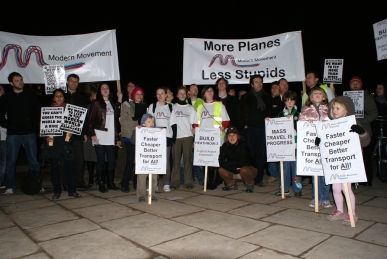

Funding
None of the organisations associated with the LM network provides a breakdown of funders and how much they have provided. We do know, however, that they are funded by corporations that fund think tanks dedicated to promoting their interests in the political and media spheres. For example, the pharmaceutical company Pfizer has funded Spiked, the Institute of Ideas' Battle of Ideas in 2005 and 2006, the Debating Matters programme and two organisations with which the LM network has connections, the Science Media Centre and Sense About Science. Both of the latter are engaged in managing debate about scientific issues.
As well as funding the LM network, Pfizer funds free market think tanks such as the US-based Competitive Enterprise Institute and Cato Institute, the Netherlands-based Edmund Burke Foundation, the Brussels based Centre for the New Europe (which also does work on climate funded by Exxon), the UK’s Social Market Foundation and the American Council on Science and Health, a deceptive front group. [14] Pfizer is a member of one of the most important global corporate lobby groups, the International Chamber of Commerce. [15] What’s in it for Pfizer? One clue is in the topics covered by the Debating Matters schools debating competition which include such subjects of interest to the pharmaceutical industry as: the value or otherwise of complementary medicine, NHS rationing of expensive drugs, clinical trials in developing countries, fertility treatments, genetic screening, anti-aging treatments, genetic engineering and animal experimentation.
BT is another major sponsor of the LM network. BT sponsored the Battle of Ideas in 2006, 2007 and 2008. In addition, then BT subsidiary O2 sponsored five Spiked Debates during 2005, 2006 and 2007[16] while another was sponsored by Orange. The Mobile Operators Association is also on record as having funded Spiked. In return, BT/ O2 and other operators had the opportunity via Spiked to challenge public concerns about the perceived effects on health, child protection and the environment of mobile phones.
Other corporations and corporate lobby groups that have funded the LM network are Cadbury Schweppes, IBM, Novartis, Orange, O2, The Mobile Operators Association and the Society of the Chemical Industry. [17] These sources of funding are typical of lobbying or PR firms. Unsurprisingly, some of the biggest lobby firms also fund the network. Hill and Knowlton is one of the most controversial lobbying and PR firms in the world, having famously been behind the deception on the incubator baby story in Kuwait in 1990/91. It also worked for a long list of controversial corporations, including some from the oil, tobacco, pharma, fast food, and GM industry. It worked too for repressive regimes, including Egypt, Haiti, Indonesia, Morocco, Turkey – and China after the Tiananmen square massacre. Along with PR firm Luther Pendragon (which has worked for the Hinduja brothers, Macdonalds, Pepsi, the GM industry and others), Hill and Knowlton has put up cash for LM network events.
The LM network has also worked with other free market think tanks such as the International Policy Network (which took money from Exxon for climate change ’outreach’) and the Social Issues Research Centre (which takes money from the food, alcohol and tech industry and downplays the risks from their products). [18]
Comment by George Monbiot
The following is an excerpt from an interview by Lobbywatch with George Monbiot about the LM network:[19]
- Lobbywatch: Do you actually think there is a network of people concertedly working together as this LM group?
- George Monbiot: That is a good question and I think it could be answered in several different ways. There is a group of people who have more or less stuck together for a long time. To what extent they consciously organise under a single name or under a single banner, I don’t know - you would have to ask them. But that they have pursued a very consistent agenda for quite a long time and the fact that they have moved first of all into one industry, television, and then into another, science communication, more or less as a body, suggests to me that there is a coordinated programme of action.
- Lobbywatch: We all have networks of people that we interact with. What makes this so different? Why do you find it so worrying?
- George Monbiot: There are two reasons why I find it worrying. The first is that the agenda they pursue appears not to be pursued overtly. For example, when they ran the magazine Living Marxism it was very far from a Marxism journal - it was just about as far from a Marxist journal as you could possibly get. And it seemed to me that the title was a direct and deliberate attempt to distract attention from the fact that this was a far right wing libertarian publication which was using the terms of the left to make it look as if the positions it was taking were new and unusual ones. Whereas in actual fact they were very well trodden ones, but well trodden by people like the Libertarian Alliance who in theory were at the other end of the political spectrum.
In another part of the interview, Monbiot talks about the LM network's lack of transparency and their fondness for ostensibly objective debates:
- Lobbywatch: Could you give more examples really of how you see them as not being as transparent as they might be? ...
- George Monbiot: The idea of them sitting behind what appears to be a front? Well another example is the way in which you have got this great proliferation of organisations which all do the same thing and have the same people in it, but run under a host of different names. And perhaps, even more importantly, the way in which they stage debates which claim to be objective and even-handed debates but are totally controlled and managed. And this is what the Institute of Ideas specialises in. Where it will…it is very clever, it knows how to get famous names… because it will write to Melvyn Bragg or someone and say, ‘Mahatma Ghandi, Nelson Mandela and Jesus Christ are coming to speak at this conference we are having in six months time - would you like to join them?’ and they say, ‘Oh yes’. And then they’ll write to Fay Weldon and say ‘Melvyn Bragg, Mahatma Ghandi, Nelson Mandela and Jesus Christ are coming’. Etc. And then they’ll say ‘Unfortunately, Mahatma Ghandi, Nelson Mandela and Jesus Christ can’t come, but anyway we have got Melvyn Bragg and Faye Weldon’. And that is how they operate. So they get all these names together and everyone thinks ‘Oh look…look at all these big names doing this debate, it has got to be a really good debate’. And then they will stuff the panels with these network people. And then you’ll suddenly say ‘Well no, hang on, wait a minute - there’s Tony Gilland, and there’s Juliet Tizzard, and there’s Fiona Fox - what are they doing on the panel?’
Organisations
Precursors
- Revolutionary Communist Tendency (1977-1981) | National Organisation of Revolutionary Communist Students 1979 | Revolutionary Communist Party (1981-1996)| The Red Front (1987) | Workers Against Racism (1978-?) | Smash the Prevention of Terrorism Act Campaign (1977-early 1980s) | Irish Freedom Movement (early 1980s to 1993) | Confrontation, theoretical journal (1986-89) | The next step, review/newspaper (1979-1994) | Living Marxism (1988-2000) | Ad-hoc Hands Off the Middle East Committee, 1990 |
Companies
The LM network has operated via a series of companies. At first these were publishing companies, but from the mid 1990s as they branched out into the science communication world and the internet these became for profit companies which often employed significant numbers of LM network associates as well as being used to cross-subsidise other LM network entities. Companies include (in date order):
- Junius Publications (1977-2000) | Informinc (LM) Limited (1997-2004) | JP Graphics Limited (1997-2003) | Cyberia | Easynet | CScape | Inset Press Limited | Academy of Ideas | Cybercafe Limited | Delta Bravo Limited |
Defunct associated entities (with years of activity)
- Africa Direct 1995-1997
- Campaign Against Militarism 1993-1998
- Channel Cyberia 1996-1999
- Chew On It Productions 2000 (inc. 2006) (dormant)
- Culture Wars 1999-2013
- Engaging Cogs 2006-2007
- Families for Freedom 1996-1999
- Feminists for Justice 1998-2000
- Freedom & Law Active 1997
- Genderwatch 1996-1999
- Global Futures launched 2002 (dormant)
- Inter-Generation launched 2009 {dormant}
- Internet Freedom 1998-2006
- Libero 1997-2000
- Litigious Society launched 1999 by Global Futures
- London International Research Exchange 1994-1998
- Maverick Club 1998-2002
- ME-WE 2003-2005
- Modern Movement active 2009
- Parents Against the Charter active 1991
- The Progress Club 2001 (dormant)
- Transport Research Group 2000-2008
- Trasna An Domhain Go Leir 1999-2003
- Workers Against Racism 1980-1994
Active associated entities (with year of launch)
- Academics for Academic Freedom 2007 together with Student Academics For Academic Freedom 2007 - Unqualified free speech
- Audacity 2000 - Construction
- Big Potatoes 2010 - Innovation
- Centre for Parenting Culture Studies 2007 - Academic network
- East London Science School 2013 - School
- Fans For Freedom 2012 - Anti-regulation
- Freedom in a Puritan Age 2009 - online magazine (loose association)
- Future Cities Project 2006 (together with Bookshop Barnies 2005 and ManTownHuman 2008) - Planning/ architecture
- Generation Youth Issues 2007 - Children and young people's peer relations
- Hands Off The Human Footprint! 2009 - 2010 (inactive) anti-environmentalist
- Institute of Ideas 2000 (together with Battle of Ideas 2005, Debating Matters 2003 and Global Uncertainties Schools Network 2010) - Debating fora
- Manifesto Club 2006 - Anti-regulation
- Novo Argumente 1992 - German online magazine (sister organisation)
- Parents With Attitude 2002 - Debating website
- Pro-Choice Forum 1997 - Abortion studies
- Salons (Regional) 2005 - Debating fora
- Spiked 2000 (together with Young Journalists Academy 2006 and free speech NOW! 2014) - online magazine
- Take a Liberty (Scotland) 2010 - Anti-regulation
- WORLDwrite 1991 (together with WORLDbytes 2008) - Current affairs/ media training
The LM network appears to have some influence with the Genetic Interest Group, the Progress Educational Trust, the Science Media Centre and Sense About Science. It also has links with The Free Society which uses as columnists LM associates Suzy Dean, Claire Fox and Dennis Hayes, carries articles by LM associates Dolan Cummings, Shirley Dent and Tim Black and maintains front page links with LM entities the Future Cities Project, Institute of Ideas and Spiked [20]. The Free Society has as its policy director ex Tory MSP and hard right ex Chairman of the now disbanded Federation of Conservative Students, Brian Monteith. The other principal organisations involved in the Society are the tobacco industry lobbyists FOREST and the right wing think tank the Adam Smith Institute. The Free Society was a partner of the 2008 Battle of Ideas.
Information on these or other past or present LM/ RCP initiatives gratefully received.
Notes
- ↑ ”LM Magazine” Local Life website accessed 7th June 2010
- ↑ P Hayes Twitter website acc 29 Oct 2011
- ↑ 'Welcome to the new-look LM', LM, February 1997, retrieved from the Internet Archive of 18 February 1998, accessed 27 October 2010
- ↑ Chris Bunting, What's a nice Trot doing in a place like this?, Times Higher Education, 28 Jan 2005, acc 21 May 2010
- ↑ Andy Beckett, Licence to rile, The Guardian, 15 May 1999, acc 21 May 2010
- ↑ Dolan Cummings, In defence of ‘radicalisation’: Critiques of Hizb ut-Tahrir focus less on its dodgy politics than on its intellectualism. But what’s wrong with a devotion to the debate of ideas?, Spiked, 12 Oct 2007, acc 21 May 2010
- ↑ "People" Audacity website, accessed 5 June 2010
- ↑ "We need your support", Audacity website, accessed 5 June 2010
- ↑ "Buy" Audacity website, accessed 5 June 2010
- ↑ "Let’s Build event 8th June 2010", Birmingham Salon website, accessed 5 June 2010
- ↑ "We need more houses, not divisive housing policies" Spiked website, accessed 5 June 2010
- ↑ "Programme 7 Audacity Director Ian Abley on planning laws" WORLDbytes website, accessed 5 June 2010
- ↑ Retrieved from the Internet Archive the LM website of 7 February 2000
- ↑ "American Council on Science and Health", BMJ website, accessed 3 May 2010
- ↑ "Links to ICC member companies", International Chamber of Commerce website, accessed 3 May 2010
- ↑ "Online debates", Spiked website, accessed 7 June 2010
- ↑ "Spiked Brand Managers’ Pack", Spiked website, accessed 8 May 2010
- ↑ "The Social Issues Research Centre", BMJ website, accessed 3 May 2010
- ↑ Lobbywatch, Interview with George Monbiot about the LM group, 11 April 2007, archived on GMWatch website, accessed 21 May 2010
- ↑ "Think Tanks/ Media", The Free Society website, accessed 31 May 2010
